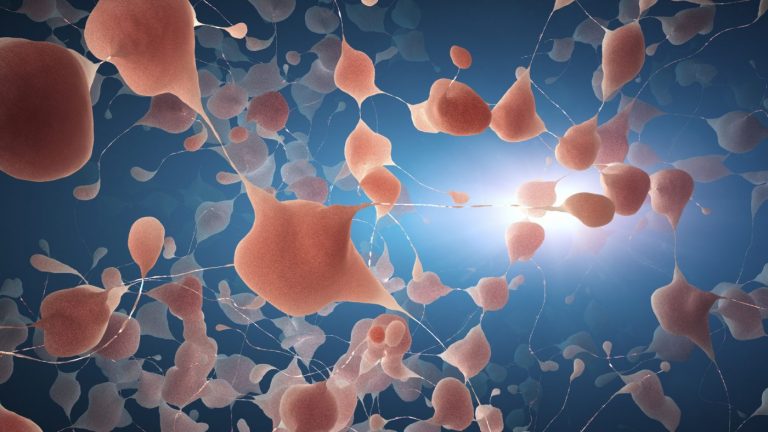
Stimulating the formation of reactive astrocytes promotes the elimination of the mutated, pathogenic protein in Huntington’s disease by reducing the quantity and size of its aggregates, show findings from a mouse study.
Astrocytes are critical for neurons and engage in a specific reactive response in Huntington’s disease. The disease is caused by a mutation in the Huntingtin gene, a protein necessary for the proper functioning of several brain cells. Astrocytes change their behavior and become “reactive.” In this study, published in the journal Brain, researchers from the National Centre for Scientific Research sought to determine reactive astrocytes’ role in Huntington’s disease.
“Here, we show that the JAK2-STAT3 pathway, a central cascade controlling astrocyte reactive response, is activated in the putamen of Huntington’s disease patients,” the researchers wrote. “Selective activation of this cascade in astrocytes through viral gene transfer reduces the number and size of mutant Huntingtin aggregates in neurons and improves neuronal defects in two complementary mouse models of Huntington’s disease.”
Astrocyte-specific transcriptomic analysis revealed that activation of the JAK2-STAT3 pathway in astrocytes coordinates a transcriptional program that increases their intrinsic proteolytic capacity, through the lysosomal and ubiquitin-proteasome degradation systems. This pathway also enhances their production and exosomal release of the co-chaperone DNAJB1, which contributes to mutant Huntingtin clearance in neurons.
“Together, our results show that the JAK2-STAT3 pathway controls a beneficial proteostasis response in reactive astrocytes in Huntington’s disease, which involves bi-directional signaling with neurons to reduce mutant Huntingtin aggregation, eventually improving disease outcomes,” concluded the researchers.
The findings demonstrate that reactive astrocytes cooperate with neurons in Huntington’s disease. Looking toward the future, the researchers want to identify how to selectively stimulate these reactive astrocytes to pave the way for possible treatments.













